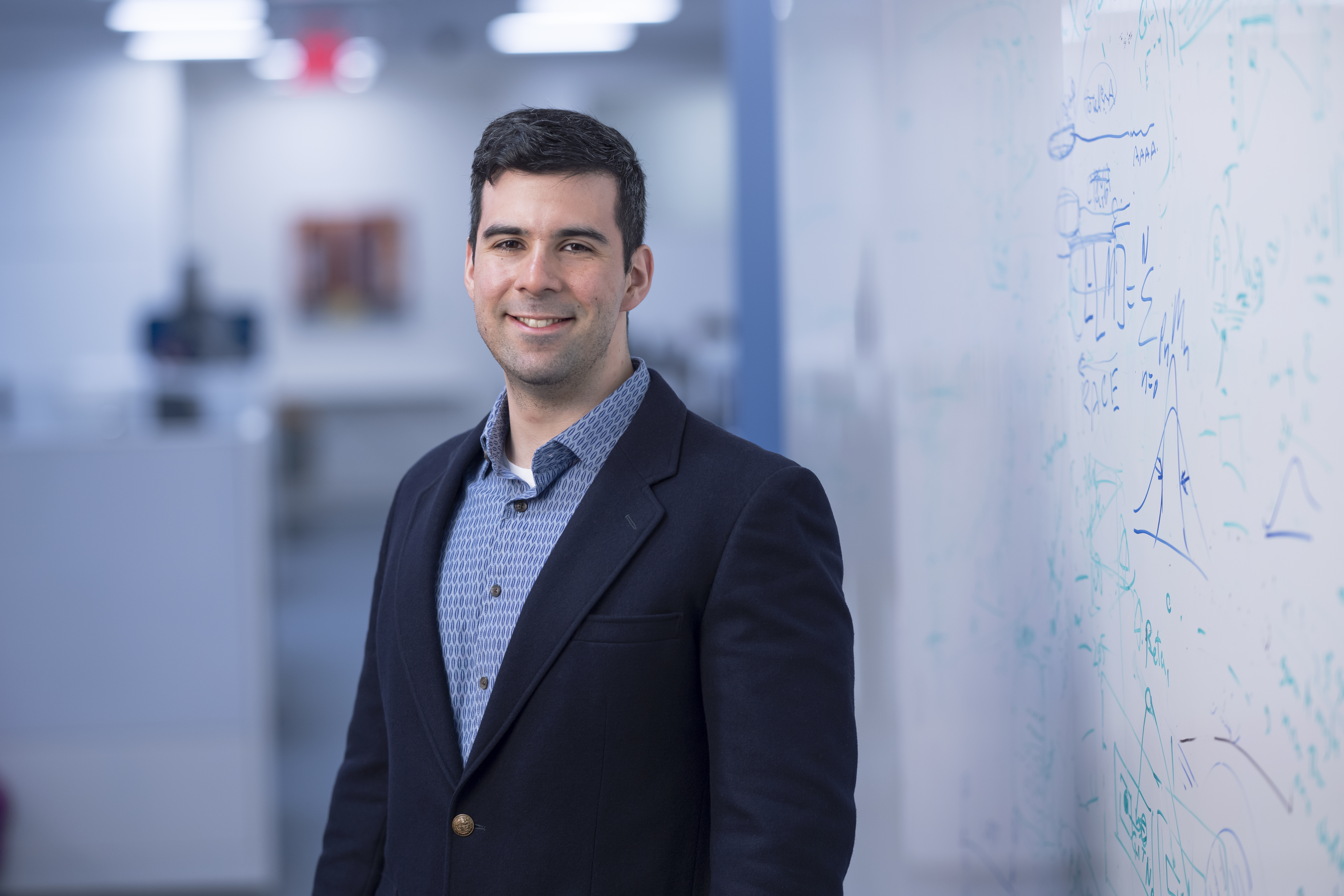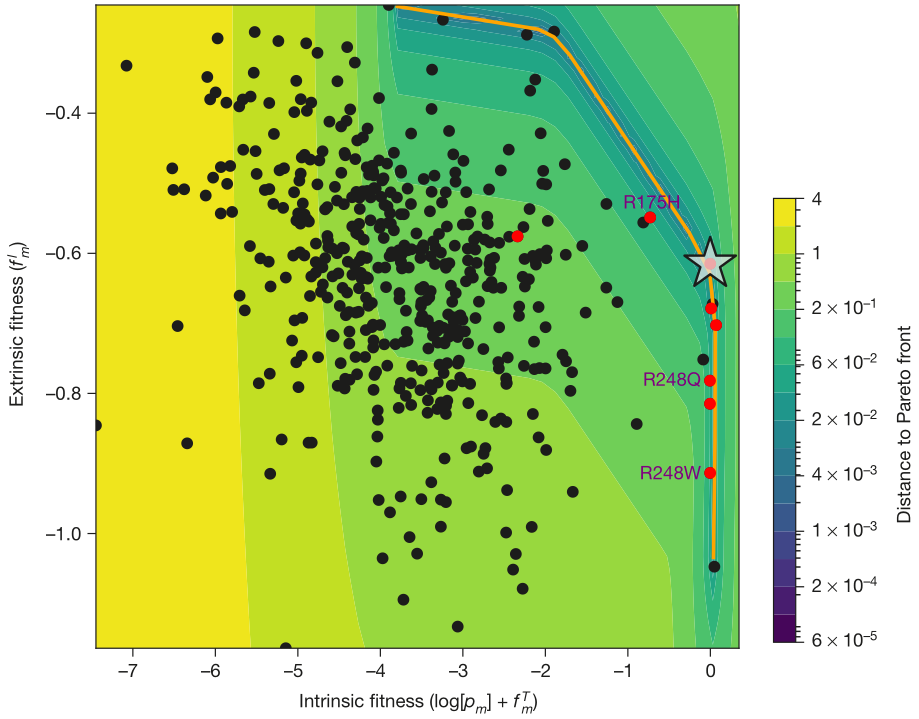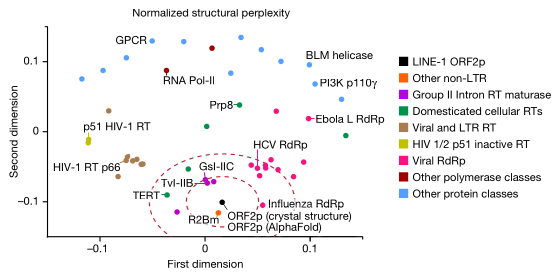
1. Tell us about your research.
I am a physicist working on problems in biology. I develop theories that quantify the fitness advantages of driver mutations in cancer - how mutations synergize and avoid the immune system. I also study how the functional evolution of three-dimensional structure can be quantified. I connect principles from diverse fields to solve complex problems that have resisted conventional approaches. My mission is to decode cancer.
Graphic 1: Free Fitness Landscape

Graphic 2: Structured Galaxy

2. What are your motivations behind choosing your area of research?
Cancer is a fundamental challenge that is forced upon all multicellular organisms. This year alone, there will be approximately 20 million new human cancer cases across the world. Addressing this significant problem will require new ideas and tools. I am contributing to progress in the war on cancer with my research. Everyday, I have the privilege to think about cancer in terms of numbers, code, information, and theoretical principles.
3. Why did you choose Weill Cornell Graduate School for your graduate studies?
The Weill Cornell Graduate School represented an invaluable opportunity to pursue research with leaders who are pioneers in their fields and have made fundamental, impactful discoveries. Importantly, the Tri-Institutional system means so much to so many people I know. Some of the people closest to me have shared deeply personal stories of how these institutions have saved their lives and the lives of those they love. The Tri-Institutional program is a battleground against cancer, and I am in the fight. Convinced of its impact and status, I only applied to the Tri-Institutional Ph.D. program in Computational Biology and Medicine at Weill Cornell.
4. What sets Weill Cornell apart from other institutions?
Weill Cornell has a strong history of leadership in quantitative biology and is a leader in the current golden age of computational biology. Its partnership with other leading institutions, including Memorial Sloan Kettering Cancer Center and Rockefeller University, create an unparalleled environment for collaborative research. The labs I have had the privilege of working with have been pioneers in immunotherapy as an actionable treatment for cancer, which has revolutionized the world. I feel very fortunate to be studying in a mission-driven institution. Although my research is highly computational, my intentions are to improve patient well-being and survival. Thanks to the invaluable contributions of patients in the Tri-Institutional program, I have the privilege of directly working with patient data to learn how to fight cancer. At Weill Cornell the administration, clinicians, researchers, and patients are working together to cure diseases such as cancer. Against this collaboration, cancer does not stand a chance.
5. What has been your most rewarding experience at Weill Cornell?
Working with foundational leaders in the fields of immunology, structural biology, and computational biology has been a rewarding experience at Weill Cornell. Publishing a first-author work in Nature on the structure of the oncogenic LINE-1 ORF2 protein and getting the opportunity to conduct self-directed work has been extremely exciting. Working with my academic role models, such as Dr. Benjamin Greenbaum, has been inspiring. Their intuition on difficult problems often guides us to new solutions. My classmates are fantastic and make science fun. It is a pleasure to hear how they approach a problem from a creative and sometimes irreverent point of view in the face of traditional approaches. In particular, working with Dr. Nora McCall at the Fellowship Office has been very rewarding. Dr. McCall has been instrumental in orienting my goals during my first year of graduate school, and it is thanks to her support that we applied to the Hertz Foundation from Weill Cornell.
6. What are your plans after you graduate?
My future career plans are to lead a research laboratory in quantitative cancer biology, build upon my current research relationships, and maintain connections with industry to power large-scale experiments that can transform the lives of cancer patients. I want to continue to connect deep principles in nature to the transformation of patients’ lives.
You can read more about the Hertz Foundation Fellowship here and about David here.
